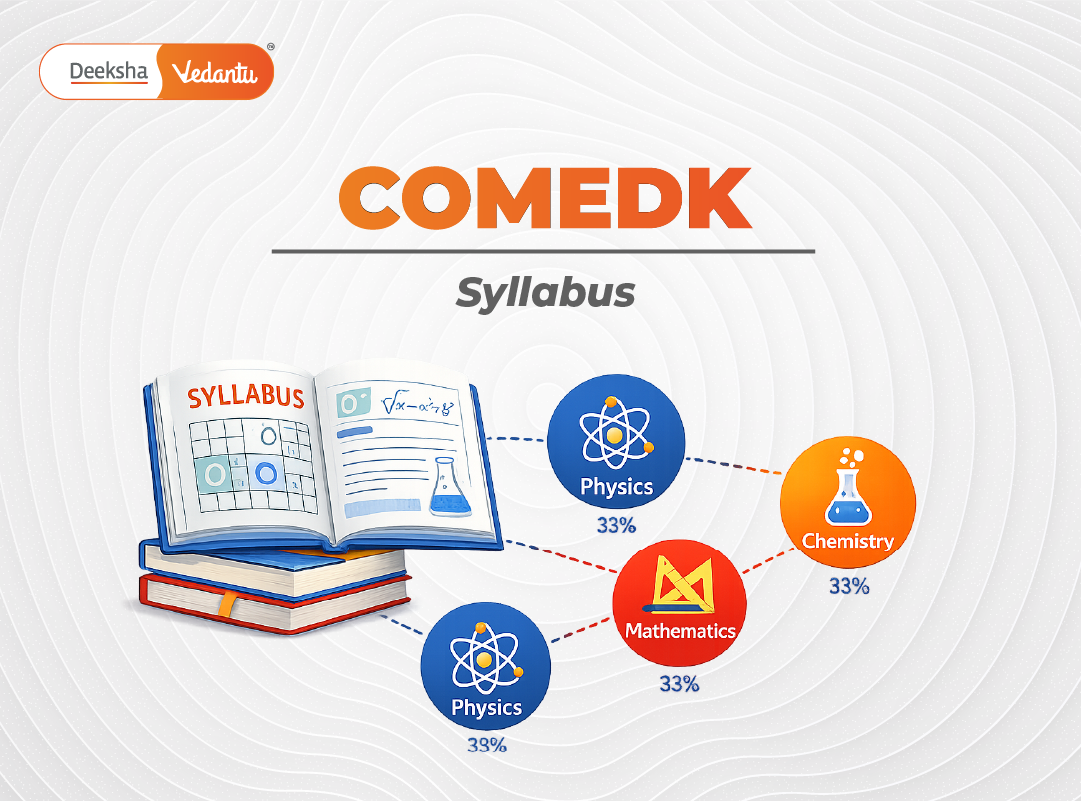In the vast landscape of education, understanding the unique ways in which individuals absorb, process, and retain information is paramount. Among the various types of learners, identifying one’s specific learning style can significantly enhance the efficiency and effectiveness of their study habits. This classification into various types of learning — be it visual, kinesthetic, reading/writing preference, or auditory — helps tailor educational strategies to suit individual needs, thereby optimizing learning outcomes.
Auditory learning emerges as a pivotal approach within this spectrum, particularly beneficial for students gearing up for the rigors of competitive exams. Auditory learners, or those who grasp information better when it is heard, find that their retention and comprehension are markedly improved through listening. Whether it’s through lectures, discussions, audiobooks, or even the rhythm and cadence of spoken words, these learners can decode and memorize information more effectively when it is presented audibly.
In this article, we will go deeper into the realm of auditory learning. By focusing on auditory learners and the strategies that best support their education, students are powered to unlock a new dimension of learning, one that elevates their preparation and sets them on a path to success in competitive exams and beyond.
What is Auditory Learning?
Auditory learning, often interchangeably referred to as aural learning, is a learning style characterized by a preference for information that is heard or spoken. Learners with this style excel when they receive new information through listening to lectures, engaging in discussions, or listening to audio recordings and books. The textbook definition of auditory learning pinpoints it as a mode of learning in which a person learns most effectively through hearing and listening.
To put it in simpler terms, imagine if, instead of reading a book with your eyes, your ears could do the learning while you listen to the story being told. That’s what it’s like for someone who learns best by hearing.
Auditory learners often find they can remember information more easily when it has been explained to them out loud, perhaps through a catchy tune, a rhythm, or simply by replaying a recording. This method of learning is not just about listening; it involves processing and understanding the information that comes through the ears, allowing learners to make connections and remember facts or concepts better when they’re heard rather than when they’re seen or written down.
Understanding auditory learning is crucial for both students and educators as it highlights the importance of incorporating varied teaching and learning methods to cater to all students’ needs, especially for those who thrive on verbal instructions and discussions. It reinforces the idea that learning is not a one-size-fits-all process and that by leveraging our auditory skills, we can enhance our ability to retain and recall information.
Auditory Learner Examples
Auditory learners flourish in environments where listening is the main avenue for learning. These individuals excel when engaging with auditory content, such as lectures, audiobooks, and group discussions. An excellent example of an auditory learner could be a student who remembers details from a history lesson not by reading the textbook, but by listening to their teacher narrate the events, perhaps even closing their eyes to better focus on the spoken words. Another instance is when students participate in study groups, where they can discuss concepts and verbally quiz each other, reinforcing their understanding and retention through the act of hearing and speaking.
In the realm of competitive exams like JEE, NEET, and KCET, auditory learners might prefer to prepare by listening to online lectures, educational podcasts, or recordings of their own notes. The trend towards digital learning environments has significantly benefited these learners, providing access to a plethora of auditory materials across various subjects, thereby catering to their preference for aural information over written text.
Moreover, auditory learners often find success by employing strategies like mnemonic devices delivered through songs or rhymes, which facilitate memorization of complex information. For instance, creating a catchy tune to remember the periodic table’s elements or the steps of a mathematical equation can be particularly effective for students who excel in auditory learning.
Characteristics Of A Auditory Learner
Auditory learners possess distinct characteristics that set them apart from their peers who may favor visual or kinesthetic learning styles. These learners thrive in environments where oral communication is prevalent, showing a strong preference for verbal instructions and discussions over written information. Here are some key characteristics of auditory learners:
- Strong Verbal Skills: Auditory learners typically excel in areas requiring verbal expression, such as public speaking, debating, and storytelling. They can articulate their thoughts clearly and understand complex concepts through listening.
- Preference for Listening Over Reading: They often prefer listening to lectures or engaging in conversations to understand new concepts rather than reading from textbooks or visual aids.
- Excellent Memory for Spoken Information: These learners have a remarkable ability to remember details from conversations, lectures, and oral presentations, often able to recall specific phrases or tones of voice.
- Learning Through Repetition: Repeating information out loud or listening to the same content multiple times helps auditory learners memorize and understand the material better.
- Use of Mnemonics and Rhythms: They find mnemonic devices, rhymes, and rhythms highly effective for memorizing data. Turning information into a song or associating it with a familiar tune can significantly enhance their recall ability.
- Participation in Group Discussions: Auditory learners actively participate in group discussions and study groups, as discussing concepts aloud helps them process and remember information more effectively.
Understanding these characteristics is crucial for educators and students alike, enabling the development of tailored teaching strategies that align with auditory learners’ natural inclinations. By leveraging their auditory strengths, these learners can optimize their study habits, leading to improved academic performance and a more enjoyable learning experience.
How To Know If You Are An Auditory Learner?
Identifying whether you are an auditory learner can significantly enhance your learning process by allowing you to adopt strategies that align with your natural inclinations. If you suspect you might be an auditory learner, consider the following indicators:
- You Prefer Listening to Lectures Over Reading Text: If you find that you grasp concepts better by listening to explanations rather than reading them from a book or notes, it’s a strong sign of auditory learning preference.
- You Remember Information by Saying It Out Loud: Auditory learners often talk to themselves or repeat information out loud to memorize it. If reciting or hearing information helps it stick in your memory, you might be an auditory learner.
- You’re Good at Following Verbal Instructions: If you can follow complex instructions after hearing them just once or twice, without needing to see them written down, this is a characteristic of auditory learning.
- You Enjoy Discussions and Group Learning: Auditory learners thrive in environments where they can listen and engage in conversations. If you feel more engaged and retain more information from group discussions or debates, this could indicate your auditory learning style.
- You Use Rhythmic Patterns to Memorize: Turning information into songs, rhymes, or associating it with musical rhythms and finding it effective points towards auditory learning tendencies.
- You Excel in Oral Exams and Presentations: If you perform better in oral exams or when presenting verbally, as opposed to written tests, this could be a sign you are an auditory learner.
Recognizing these traits in yourself can be a breakthrough in optimizing your study methods. Auditory learners can greatly benefit from strategies that leverage listening and speaking, such as participating in study groups, using educational podcasts, and teaching others, which can all enhance understanding and retention of information.
Top Benefits Of Auditory Learning
Auditory learning, with its emphasis on listening and verbal communication, offers a plethora of benefits that can significantly enhance the educational experience and outcomes for learners inclined towards this style. Here are some top benefits of auditory learning:
- Enhanced Auditory Processing: Auditory learners develop an acute sense of hearing that aids in distinguishing subtle differences in sounds and tones. This heightened auditory processing is beneficial for activities that require keen listening, such as music, language nuances, and even coding, where auditory feedback can signal errors.
- Ease of Integration with Technology: Modern technology supports auditory learning through sophisticated text-to-speech software, podcasts, and virtual classroom discussions. This ease of integration allows learners to access information in their preferred format, anytime and anywhere, effectively keeping them engaged with their studies.
- Strength in Oral Examinations and Public Speaking: Unlike their peers, auditory learners often excel in situations where they can verbalize their knowledge, such as oral exams, presentations, and public speaking engagements. This ability not only aids in academic assessments but also prepares them for roles requiring strong presentation and negotiation skills.
- Adaptability to Varied Learning Environments: Auditory learners can adapt seamlessly to both traditional classroom settings and online learning environments where audio components are emphasized. This adaptability is increasingly important in today’s diverse and evolving educational landscape.
- Superior Sequential Processing: Auditory learners tend to excel at understanding and remembering information presented in a sequence. This ability is particularly useful for subjects like history or processes in science, where chronological order and procedural steps are crucial.
- Social Learning Advantage: Through their preference for discussion and verbal interaction, auditory learners often benefit from enhanced social skills. The collaborative aspect of learning in groups or with a partner not only solidifies their understanding of the material but also builds essential interpersonal skills.
These benefits highlight the diverse strengths and opportunities provided by auditory learning, underscoring its role in fostering a comprehensive skill set that extends beyond academic achievement to include personal and professional development.
What Are The Disadvantages Of Auditory Learning?
While auditory learning has many benefits, it also presents certain challenges that learners and educators need to navigate. Understanding these disadvantages is crucial for creating balanced and inclusive educational environments:
- Distraction in Noisy Environments: Auditory learners can struggle in environments where background noise is prevalent. Unlike visual learners who might tune out distractions by focusing on text or images, auditory learners may find it difficult to concentrate when there is competing auditory information.
- Limited Visual and Kinesthetic Engagement: Because auditory learners prefer listening, they might miss out on the benefits that visual aids and hands-on activities offer. This can lead to gaps in learning, especially in subjects where diagrams, charts, or physical manipulation of objects are integral to understanding complex concepts.
- Reliance on Verbal Instructions: Auditory learners’ preference for verbal instructions can be a disadvantage in situations where written instructions are more detailed or when learning material is primarily available in written form. This reliance can hinder their ability to work independently in certain academic or professional tasks.
- Note-Taking Challenges: Since auditory learners focus on listening, they might find note-taking challenging, as it requires dividing attention between listening and writing. This can result in incomplete or inaccurate notes, potentially impacting study effectiveness.
- Misinterpretations in Communication: Purely verbal communication lacks the visual cues and body language that accompany face-to-face interactions. Auditory learners might misinterpret the tone or intent of spoken words without these additional cues, leading to misunderstandings in both academic and personal contexts.
By recognizing these challenges, auditory learners can employ strategies to mitigate these disadvantages, such as seeking quiet study spaces, incorporating visual and kinesthetic elements into their study routines, and improving note-taking techniques, ensuring a more holistic learning experience.
Frequently Asked Questions For Auditory Learning
Who is considered an auditory learner?
- An auditory learner is someone who learns best through listening. They excel in environments where learning involves hearing, such as lectures and discussions.
What are auditory learning skills?
- Auditory learning skills include listening attentively, understanding and retaining information from spoken words, and processing oral instructions effectively.
What are the 4 types of learners?
- The four types of learners are visual, auditory, reading/writing, and kinesthetic.
What are the strengths of an auditory learner?
- The strengths of an auditory learner include excellent listening skills, strong verbal communication, and the ability to remember information presented verbally.
What are the 3 main learning styles?
- The three main learning styles are visual, auditory, and kinesthetic.
How do you teach auditory learners?
- Teach auditory learners by incorporating discussions, lectures, and storytelling into the curriculum, and using auditory aids like podcasts and audio recordings.
How do I know if I am an auditory learner?
- If you prefer listening to information, excel in oral exams, and remember details from conversations well, you may be an auditory learner.
What is another name for an auditory learner?
- Another name for an auditory learner is an aural learner.
What are the 2 most common learning styles?
- The two most common learning styles are visual and auditory.
What does VAK stand for?
- VAK stands for Visual, Auditory, and Kinesthetic learning styles.
What is a key characteristic of auditory learners?
- A key characteristic of auditory learners is their ability to learn effectively through listening and verbal engagement.
What do auditory learners use?
- Auditory learners use tools like audio recordings, podcasts, and verbal instructions to facilitate their learning process.
What are the tools of auditory learning?
- Tools of auditory learning include audiobooks, educational podcasts, verbal lectures, and group discussions.
Are humans auditory learners?
- While humans have the capacity to learn through various sensory inputs, auditory learning is a primary mode for many, leveraging our innate ability to process and understand spoken language.
Deeksha’s Role in Aiding Auditory Learners
Deeksha recognizes the unique needs of auditory learners and has tailored its educational approach to support and enhance their learning experience. By understanding the strengths and preferences of auditory learners, Deeksha creates an environment where these students can thrive, particularly through its lecture and discussion formats.
Lectures at Deeksha are meticulously designed to be comprehensive and detailed, ensuring that auditory learners can follow along smoothly. Recognizing the importance of clarity and depth, educators take the time to delve into complex concepts, making sure that students not only hear but truly understand the material. This detailed approach to lectures is especially beneficial for auditory learners, as it caters to their preference for learning through listening.
Furthermore, all Deeksha campuses place a strong emphasis on group discussions as a key learning tool. These discussions are not only a platform for auditory learners to reinforce their knowledge through verbal expression but also a dynamic space where they can engage with diverse perspectives. Teachers facilitate these discussions, guiding students to explore various aspects of a subject deeply.
To ensure that no student’s doubts remain unaddressed, Deeksha’s expert faculties engage with students in smaller groups or one-on-one sessions. This personalized attention guarantees that auditory learners can clarify their queries in a dialogue format, which is most conducive to their learning style.
Additionally, Deeksha encourages the use of audio resources like podcasts and educational audio clips, further supporting auditory learners. This variety of auditory-based learning strategies signifies Deeksha’s commitment to creating an inclusive and supportive educational environment for all types of learners, ensuring that auditory learners have the resources and guidance they need to succeed academically.
Final Thoughts
As we conclude a comprehensive exploration into the auditory learning style, demonstrating how it can significantly enhance one’s educational journey. Understanding and leveraging this learning preference can unlock new potentials, making the process of acquiring knowledge more efficient and effective. For students preparing for pivotal milestones like PU (science and commerce) and competitive exams such as JEE, NEET, KCET, CA, or CS, adapting to auditory learning techniques could very well be the key to achieving academic success. Deeksha, with its tailored approach to education, stands as an ideal partner in this journey. By joining Deeksha, students gain access to an environment that not only recognizes but nurtures individual learning styles, thereby boosting their chances of success. Embrace the power of auditory learning with Deeksha, and step confidently towards your goals, equipped with strategies that enhance your learning capabilities to their fullest potential.














Get Social